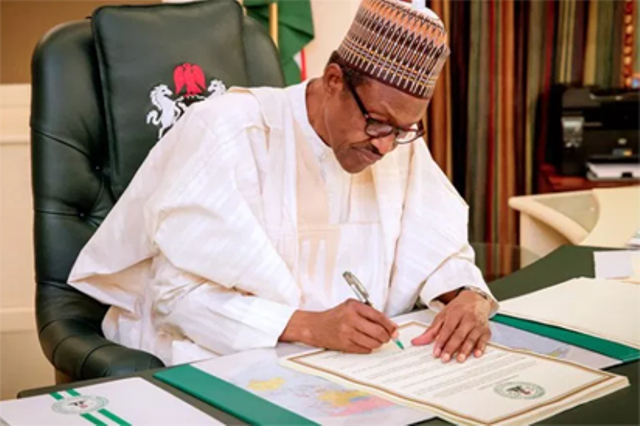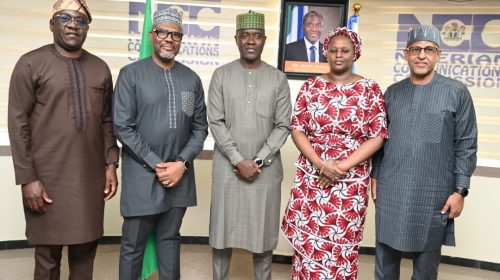Experts decry non-passage of PIB during Buhari’s first term

Industry experts have expressed disappointment as the Petroleum Industry Bill did not become a law during the first term of President Muhammadu Buhari, despite assurances and promises from the legislature and the executive.
A key obstacle to the growth of the Nigerian oil and gas industry has been widely described as the regulatory uncertainty caused by the delay in the passage of the PIB.
The PIB, which has been in the works since 2008 when it was first introduced to the legislature, suffered setbacks in the sixth National Assembly and the next.
“The non-passage of the bill just creates additional uncertainty because you have told the world that you are going to reform your oil industry since the year 2000. And since 2008, you have been sending bills to the National Assembly and nothing has come out of it,” the Director, Emerald Energy Institute, University of Port Harcourt, Prof. Wumi Iledare, told our correspondent.
He added, “That is why the industry is not as efficient as it ought to be. We can’t be governing based on 1969 law in 2019.”
The bill seeks to change the organisational structure and fiscal terms governing the industry.
The eighth National Assembly split the PIB into four parts — Petroleum Industry Governance Bill, Petroleum Industry Administration Bill, Petroleum Industry Fiscal Bill and Petroleum Host Community Bill — to fast-track its passage into law.
After its passage by both the Senate and the House of Representatives, the PIGB was transmitted to the President for assent in July last year to enable it to become law but it emerged in August that Buhari declined to assent to the bill.
The Senior Special Assistant to the President on National Assembly Matters (Senate), Ita Enang, identified the provision of the PIGB permitting the Petroleum Regulatory Commission to retain as much as 10 per cent of the revenue generated as one of the reasons Buhari declined to assent to the bill.
The Lagos Chamber of Commerce and Industry, which has members operating in the oil industry under the aegis of the Oil Producers Trade Section, said the non-passage of the PIB was a major setback for the industry as well as the economy.The Director-General, LCCI, Mr Muda Yusuf, in a telephone interview with our correspondent, described the PIB as a major reform instrument “to bring about the kind of transformation that we seek in the petroleum sector.”
He said, “But unfortunately, we haven’t made any progress at all. In fact, if there is any sector where there is no significant progress as far as positive change or transformation or reform is concerned, it is the oil and gas sector. We have really retrogressed as far as the sector is concerned.
“We need to make our oil sector competitive globally. Right now, we are losing a lot of investments to Angola; most international oil companies are now investing in Angola. The earlier we understood this, the better for us.”
Decrying what he called “unnecessary uncertainty” occasioned by the delay in the passage of the bill, Iledare said, “Investors will be wary and the competition is keen. Twenty years ago, only five countries were producing oil in Africa. Today, nearly every African country along the coast has oil; so there are other places investors can go to.
“Companies are mostly developing what they have; they are not looking for new reserves; you can’t sustain the oil and gas industry unless you are investing in new reserves.”
The immediate past Chairman, Petroleum Club, Lagos, Mr Godswill Ihetu, said, “Unfortunately, the PIB has dragged on for many years; it may have caused people to not invest. But I think that will be for new entrants – people who don’t know Nigeria. But the current players in the industry – the multinationals – know Nigeria and can assess their risks and still invest, and they are investing.”
The Energy Information Administration, the statistical arm of the US Energy Department, said as a result of the uncertainty, international oil companies in Nigeria had sanctioned (reached a final investment decision)on only one of the eight planned deepwater oil projects.
“Regulatory uncertainty has resulted in fewer investments in new oil and natural gas projects, and no licensing round has occurred since 2007. The amount of money that Nigeria loses every year from not passing the PIB is estimated to be as high as $15bn,” the EIA said.
According to the LCCI boss, the government has not shown sufficient enthusiasm for reforming the sector.
“We are losing out on the huge potential of the sector in terms of revenue, investment, and quality jobs because the environment, in terms of governance, legislation and regulation, is just not right. My prayer and hope are that in the next phase of this administration, it is going to be one of the high priorities for this government, and I hope it will have the political will to be able to undertake the necessary reforms,” Yusuf added.
Punch







Leave a Reply